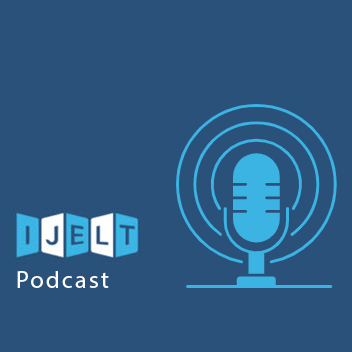Reference
Burns, M. (2022). Ready or Not to Adopt a Pedagogy of Play for Children Starting School in Scottish Primary Schools-Is this a Major Transition for Teachers?. International Journal of Educational and Life Transitions, 1(1), 5. DOI: http://doi.org/10.5334/ijelt.28
Podcast
You can listen to Dr Marion Burns’s podcast for an introduction to the article.
Transcript of the podcast
The title of this paper is, Ready or Not to Adopt a Pedagogy of Play for Children Starting School in Scottish Primary Schools–Is this a Major Transition for Teachers?
By drawing on empirical data, from my doctoral study, I question how ready Scottish primary teachers are to adopt a pedagogy of play as opposed to more traditional didactic teaching approaches when planning and delivering an early years curriculum for children starting school. Children transitioning to school have traditionally been expected to be ‘school ready’; preparing them for a culture where play has yet to be consistently and universally embraced as pedagogy.
Whether the school child continues to experience a pedagogy of play, is debateable and arguably inconsistent across Scotland.
However, adopting play pedagogy has become the focus of recent professional development for many primary school teachers who are increasingly acknowledging the value of alternative pedagogical approaches, including play as the way to build on what children already know and can do as they start school (Grogan and Duncan 2017; Palmer 2020; Peters et al. 2018).
The exploratory study, on which this paper is based, aimed to explore the barriers and challenges facing practitioners and teachers in planning and implementing the early years curriculum which in Scotland is referred to as Curriculum for Excellence-Early Level (Scottish Government 2008).
Sahlberg and Doyle (2019) highlight some of the political pressures facing early childhood educators to reduce the amount of time children spend playing. These pressures include demonstrating children’s academic achievement as set out within public education policies. Nationally and internationally, teachers in the early primary stages are potentially torn between realising the advancement of play pedagogy within their classroom and responding to external assumptions that children need to spend more time on cultivating skills and gaining knowledge and understanding needed for the future.
Elements of Bronfenbrenner’s (2006) bioecological theory and Bourdieu’s (1985) sociocultural theory were combined to create a theoretical framework on which to base the analysis of the research data and discussion of the research findings. An important feature of the framework was the focus on relationships and interactions,
Thematic analysis of the qualitative data revealed the emergence of two ‘early level traditions’
Demonstrating the polarised nature of the pedagogical approaches used by the nursery practitioners and P1 teachers.
While the content of the ‘early level’ of Curriculum for Excellence in both the nursery tradition and the P1 tradition are generally well understood, the study found the ‘how’ to deliver the curriculum was understood differently, resulting in discontinuity in pedagogical practices. By connecting the two ‘early level’ traditions, it should be possible to open up a third space that allows for negotiation and collaboration
Finally, by empowering teachers to embrace play pedagogy in primary schools through cross sectoral collaboration, children starting school are more likely to benefit from a flexible, socially constructed, continuous ‘early level’ curriculum experience.
